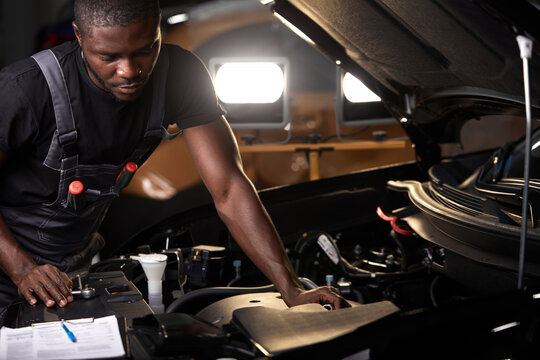All Categories
Featured
Winter months driving can be one of the most possibly harmful and tough problems for any kind of car proprietor. Preparing your automobile for winter months is vital to make sure that it carries out securely and accurately.
![]()
Final thought. Winter season driving needs even more prep work than simply wrapping and obtaining behind the wheel. To stay secure when driving, ensure your auto is winter-ready by examining the battery, brakes, tires, and fluids. Regular upkeep, combined with emergency preparedness, can make all the difference when browsing icy roadways and challenging weather. By following these tips, you'll be fully equipped to tackle the winter season months with safety, convenience, and confidence.
- Examine the Battery. Cold temperatures can dramatically affect your automobile's battery efficiency. An old or weak battery is extra likely to fall short when the temperature level drops, leaving you stranded. Have your battery evaluated to guarantee it remains in great condition. It may be time for a substitute if your battery is more than three years old or reveals signs of deterioration. In addition, clean any type of corrosion from the battery terminals and guarantee they are snugly connected.
- Check the Tires. Wintertime conditions demand extra from your tires. Wintertime tires are made with special step patterns and compounds that provide better hold on snow and ice. If you live in a location with harsh winter seasons, think about changing to winter months tires.
- Examine Fluids and Antifreeze Degrees. In winter months, your automobile counts on its liquids to operate effectively, so guarantee that your antifreeze is at the appropriate level. The coolant system prevents your engine from cold, so completing the antifreeze or having it flushed and changed if required is important. Likewise, inspect the levels of engine oil, brake fluid, and windshield washing machine liquid. Make certain you utilize a winter-grade windshield washing machine liquid that will not ice up in the chilly, and keep the storage tank full to make certain excellent exposure throughout snowy or wet conditions.
- Inspect the Wipers and Windshield. Your windscreen wipers are your initial line of protection against inadequate visibility, so it's necessary to make certain they remain in leading condition. Change old, worn wipers, and utilize winter season wiper blades, which are extra sturdy and resistant to ice buildup. Examine the windshield for chips or splits that can worsen in freezing temperature levels. Consider applying a water repellent treatment to the windscreen to aid water bead off during storms and enhance presence.
- Test Your Brakes. Brakes are even more critical in wintertime driving. Unsafe conditions require fast feedbacks, so make certain your brake pads, rotors, and brake liquid are done in excellent problem. If your brake pads are worn or your brake fluid is reduced, have them replaced or complemented. When driving in icy or snowy conditions, always maintain a secure distance from other lorries and use additional care when stopping to protect against crashes.
- Prepare for Emergencies. In spite of your best shots to prepare your vehicle, winter driving can still provide unexpected obstacles. To stay secure, maintain an emergency situation set in your car. This should consist of things such as a covering, flashlight, very first aid set, jumper cable televisions, added handwear covers and hats, and a shovel. A bag of sand or salt can additionally work for traction if your car gets stuck. Additionally, keep some non-perishable food and water in the vehicle in instance you obtain stranded.

- Ensure Appropriate Lighting. Wintertime usually suggests much shorter days, so it's important to make certain your fronts lights, tail lights, and brake lights are working properly. Check for any type of burnt light bulbs and replace them before you struck the roadway. If you drive through locations that get heavy snowfall or haze, haze lights can assist boost visibility. Clean the fronts lights frequently to remove snow, dirt, and gunk that could decrease their efficiency.
- Make Sure Proper Tire Chain or Grip Aid Readiness. Take into consideration maintaining tire chains or traction aids in your car if you live in an area that frequently experiences severe winter weather condition. These can be important when driving in deep snow or over ice-covered roads. Ensure you know how to install them correctly and practice beforehand, so you're not captured off-guard in an emergency situation.
- Inspect Your Heating and Defrosting Systems. You'll desire your heating and defrosting systems to be in optimal functioning order for those cold, frosty mornings. Check the heating system and defroster to ensure they are working well, and replace any type of cabin air filters if required to preserve good air circulation. A malfunctioning heater can make driving unpleasant and even dangerous, especially when roads are icy and presence is jeopardized by fogged home windows.
Final thought. Winter season driving needs even more prep work than simply wrapping and obtaining behind the wheel. To stay secure when driving, ensure your auto is winter-ready by examining the battery, brakes, tires, and fluids. Regular upkeep, combined with emergency preparedness, can make all the difference when browsing icy roadways and challenging weather. By following these tips, you'll be fully equipped to tackle the winter season months with safety, convenience, and confidence.
Latest Posts
Improve Your Home's Outside with Weathercraft's Siding Solutions
Published May 28, 25
1 min read
Safeguard and Improve Your Home with Weathercraft's Siding Solutions
Published May 27, 25
1 min read
Uncover Brake Repair & More: Full Repair Options from Montclare Auto Repair
Published May 27, 25
1 min read
More
Latest Posts
Improve Your Home's Outside with Weathercraft's Siding Solutions
Published May 28, 25
1 min read
Safeguard and Improve Your Home with Weathercraft's Siding Solutions
Published May 27, 25
1 min read
Uncover Brake Repair & More: Full Repair Options from Montclare Auto Repair
Published May 27, 25
1 min read